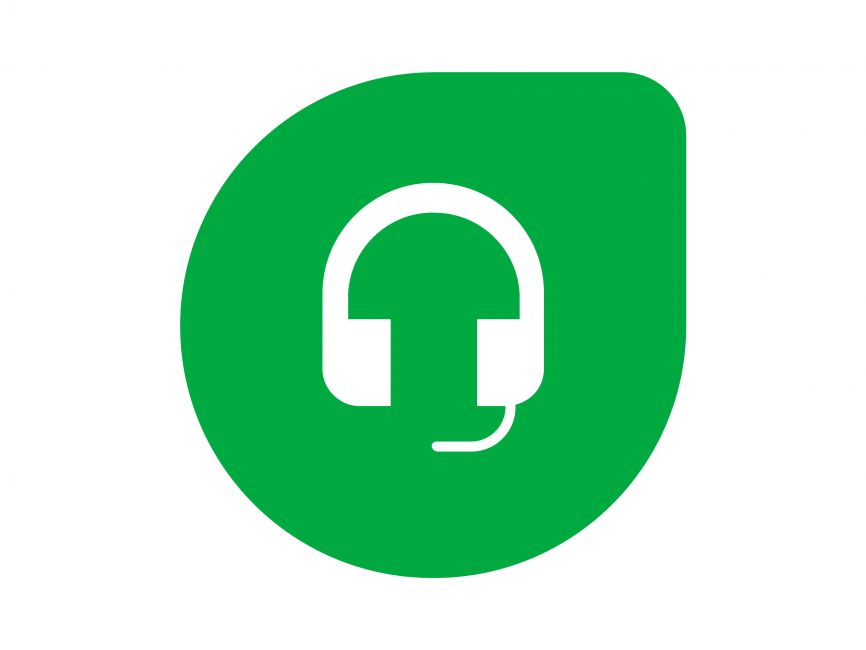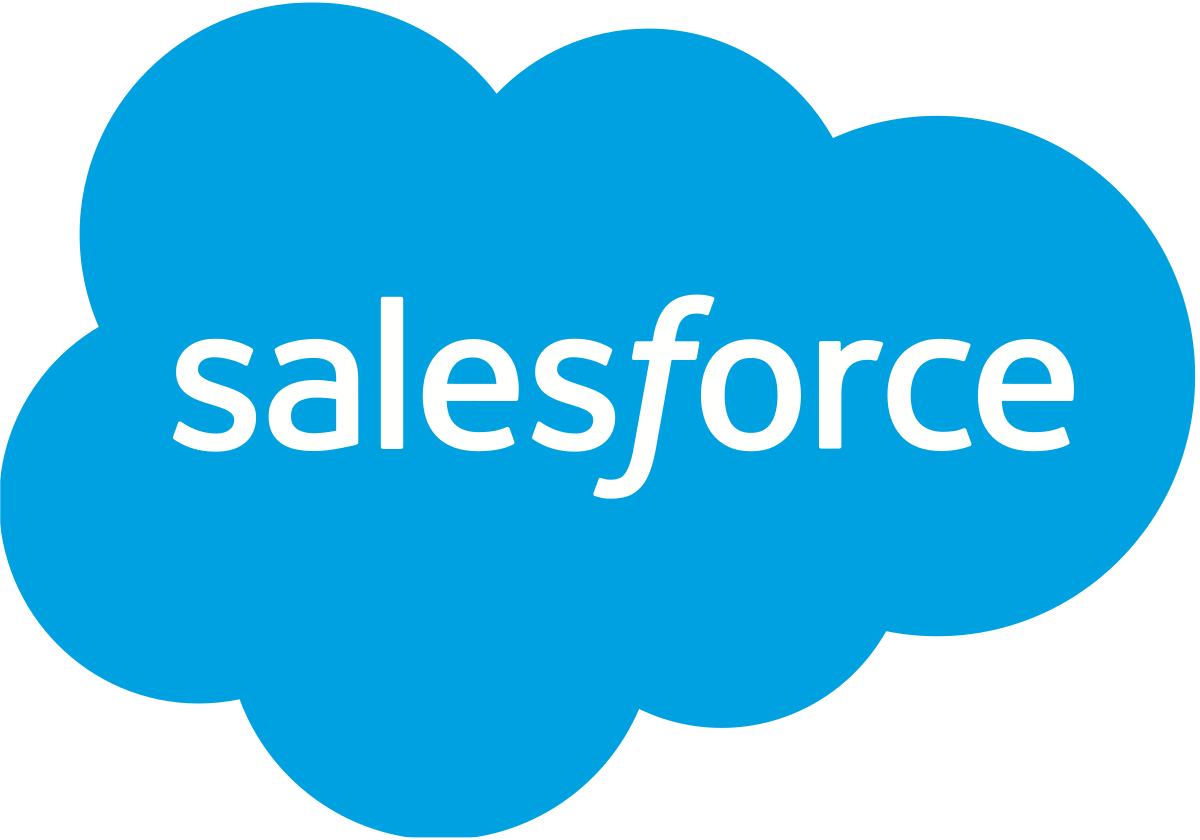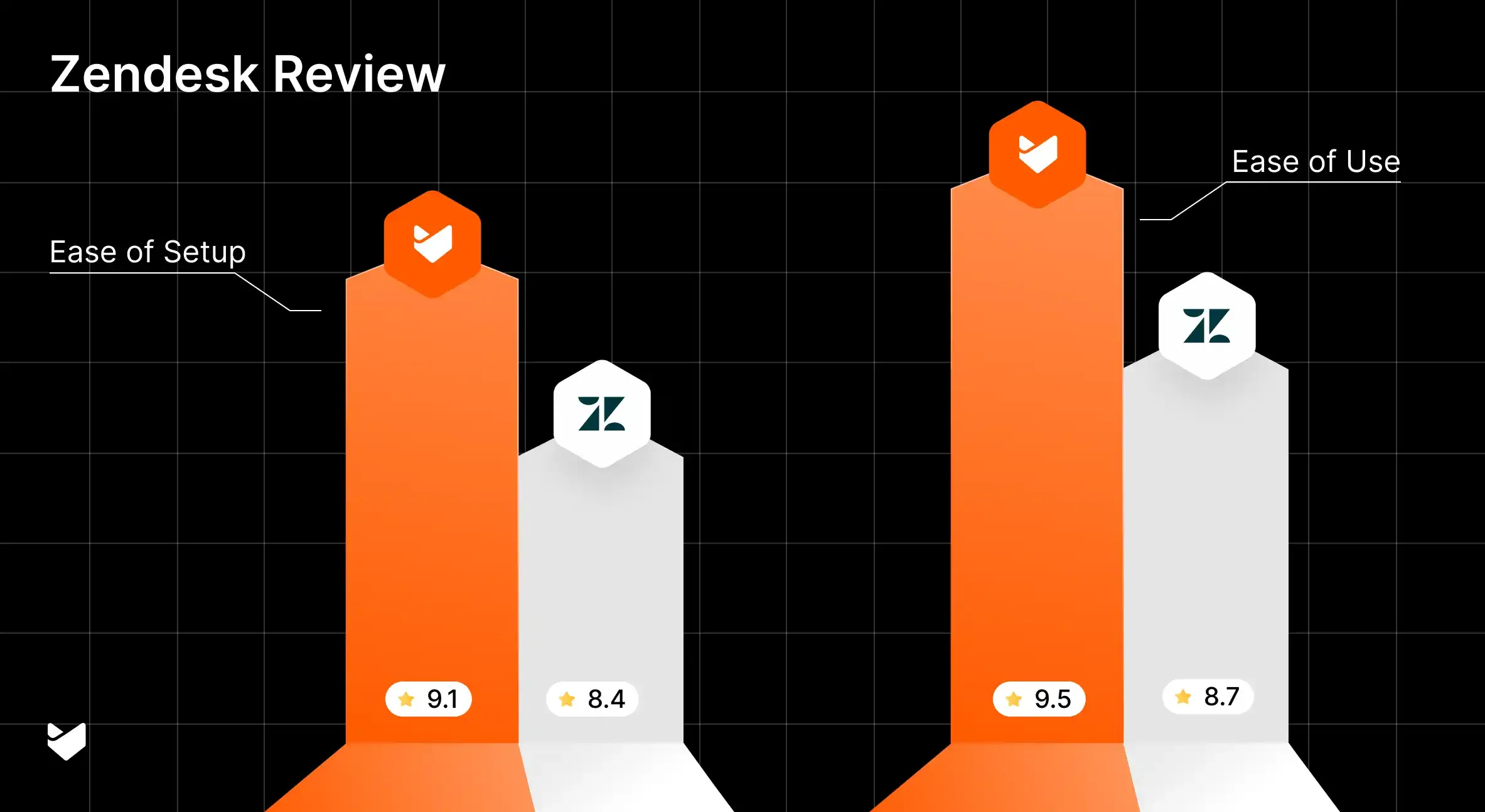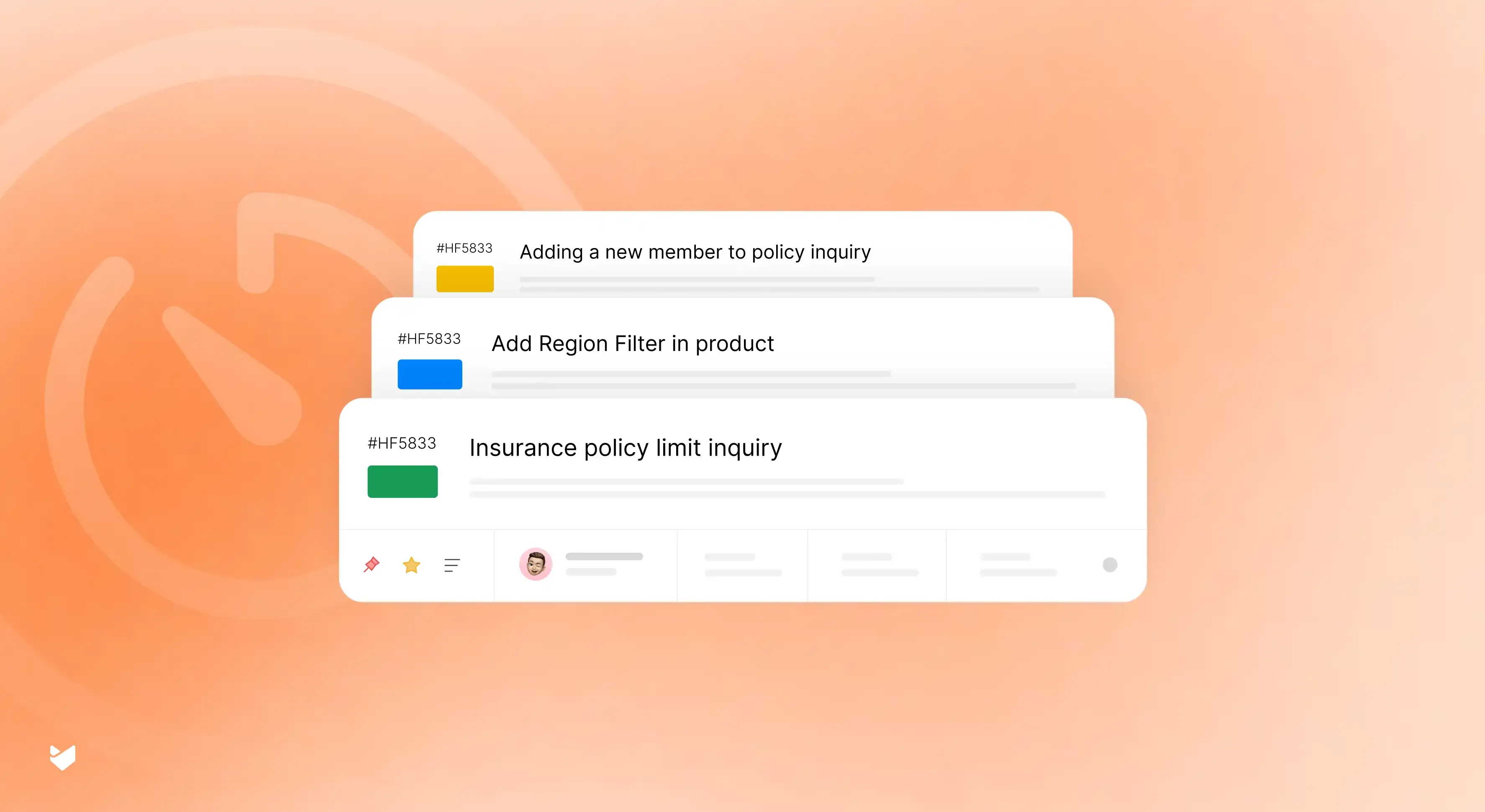Best 7 Ticket Tracking Software 2025

Shalin
Founder & CEO HappyFox
October 21, 2025
"We missed three urgent customer issues this week. They got lost in our email threads. Now we're dealing with cancellations."
Sound familiar?
Support teams everywhere share this pain. Your customer requests pile up everywhere. Important problems disappear. Team members duplicate work. Nobody knows who's handling what.
A good ticket tracking system fixes these headaches by:
- Organizing all support requests in one place
- Assigning clear ownership for each issue
- Tracking progress from first contact to resolution
- Preventing important problems from falling through the cracks
This guide examines 12 proven ticket tracking solutions for 2025, providing the insights you need to select a platform that aligns perfectly with your support requirements.
Ticket tracking software is a specialized system designed to monitor, organize, and manage support inquiries throughout their lifecycle. These platforms convert customer communications from various channels into traceable tickets, enabling support teams to systematically categorize, assign, and address each issue until resolution.
A quality ticket tracking system acts as the central hub for all customer interactions, providing detailed records and accountability throughout the support process. When properly implemented, these solutions transform chaotic support workflows into structured, measurable operations that deliver consistent customer experiences.
Key Features to Look for in Ticket Tracking Software
Before diving into specific solutions, understand these critical capabilities that define effective ticket tracking systems:
- Multichannel Support: Ability to generate and manage tickets from email, social media, live chat, phone, and other communication channels
- Customizable Workflows: Options to define ticket routing, priority levels, and escalation paths based on your specific business requirements
- Collaboration Tools: Tools to streamline repetitive tasks like ticket assignment, status updates, and follow-up notifications
- Automation Capabilities: Tools to streamline repetitive tasks like ticket assignment, status updates, and follow-up notifications
- Self-Service Options: Knowledge base integration to reduce ticket volume by empowering customers to find answers independently
- Reporting and Analytics: Metrics on ticket volume, resolution times, agent performance, and customer satisfaction
- Integration Flexibility: Compatibility with your existing business tools and systems
7 Top Ticket Tracking Software Solutions Compared

HappyFox



HappyFox's ticket tracking system provides robust ticket lifecycle management from creation to resolution. The platform excels at managing ticket workflows with customizable statuses, priorities, and categories that adapt to your specific support process.
Trusted by over 2,000 organizations across 70+ countries, HappyFox combines powerful tracking capabilities with exceptional ease of use and intuitive design. The platform's straightforward setup and minimal learning curve make it accessible for teams without extensive technical resources, while flexible customization options allow organizations to tailor tracking workflows without added complexity.
Key Features
-
Omnichannel ticketing (email, phone, chat, social media):
Converts requests from multiple communication channels into centralized tickets for unified issue tracking and management.
-
Smart automation with customizable workflows:
Streamline operations with intelligent automation based on time and event triggers, auto-assignment, escalation rules, and custom workflow builders.
-
Advanced SLA management:
Maintain service commitments with comprehensive SLA tracking, automated alerts for approaching deadlines, and escalation protocols.
-
Integrated knowledge base:
Set up a fully customizable knowledge repository with searchable articles and resources that integrate seamlessly with ticket resolution workflows.
-
Comprehensive reporting and analytics:
Get ready-to-use advanced reports around ticket inflow, resolution times, agent performance, SLA compliance, and system utilization metrics.
-
AI-powered productivity features:
Boost team efficiency with artificial intelligence that automatically summarizes tickets, suggests response templates, and provides intelligent routing recommendations.
-
Team collaboration tools with collision detection:
Enhance teamwork through shared ticket threads, private notes, and real-time collision detection that prevents duplicate work across team members.
Key Strengths
-
Intuitive Interface & Rapid Setup:
No steep learning curve or complex onboarding—get your support system running in under an hour with powerful features that don't require extensive training.
-
Customization Flexibility:
Adapts to any team or use case with deep customization across ticketing, support centers, workflows, automations, and reporting—going beyond one-size-fits-all solutions.
-
Comprehensive AI-Powered Support:
AI-driven productivity with instant ticket summaries, smart response suggestions, automatic resolution recommendations, priority detection, and knowledge base optimization.
-
Scalable & Transparent Pricing:
Flexible pricing that grows with your team—start small and scale effortlessly without hidden costs. Plus unlimited-agent plans with cost-saving potential for larger teams.
-
Exceptional Customer Support Culture:
Entire team, including leadership, is committed to your success—ensuring faster escalations, quicker resolutions, and direct access to decision-makers.
-
Enterprise Features Without Complexity:
Get all the functionality you need without unnecessary complexity, steep learning curves, or the overhead typically associated with enterprise solutions.
Ideal For
-
- Startups with limited resources that need quick setup, AI automation, and affordable pricing that scales.
- Growing companies that need simple, all-in-one solutions without complexity or high costs.
- Organizations with multiple teams (IT, HR, Facilities) that need unified collaboration for internal and external support.
- Large operations that need enterprise-grade security, global deployment, and deep system integrations.


Support requests no longer fall through the cracks and get lost in an email or some spreadsheet
Bill Bates
Director of Technology, Pinewood Private School

Hiver



Hiver transforms Gmail into a powerful ticket tracking platform without requiring agents to learn a new interface. The system adds ticket management functionality directly within the Gmail environment, allowing teams to maintain familiar workflows while gaining tracking capabilities.
Key Features
-
Gmail-integrated shared inboxes
-
Email assignment and tracking within Gmail
-
Internal notes and @mentions for collaboration
-
Email collision prevention
-
SLA tracking and monitoring
-
Custom ticket views and organization
Ideal For
-
Gmail-centric teams seeking to implement ticket tracking without adopting an entirely new platform.
We also recommend reading:
Ticketing System: The Ultimate Guide in 2024

Zendesk



Zendesk's ticket tracking focuses on streamlining the complete ticket journey from submission to resolution. The system automatically logs every interaction, status change, and internal note, creating a comprehensive record of each ticket's progress.
Key Features
-
Centralized ticket queue with customizable views
-
Ticket tagging system for categorization and filtering
-
Automated ticket routing based on predefined criteria
-
Cross-department ticket transfer with accountability
-
SLA tracking with alerting for at-risk tickets
Ideal For
-
Growing enterprises managing complex ticket workflows across multiple teams, channels, and customer segments.
Recommended Reading:
Learn how Zendesk vs. HappyFox compare.

Freshdesk



Freshdesk's ticket tracking emphasizes visibility through an intuitive interface that clearly displays each ticket's current status, assigned agent, and resolution progress. Both support teams and customers can easily monitor ticket advancement through the resolution workflow.
Key Features
-
Visual ticket timeline showing all activities and responses
-
Collision detection to prevent duplicate work on active tickets
-
Parent-child ticket relationships for tracking issue dependencies
-
Time tracking for resolution effort measurement
-
Ticket conversion between communication channels
Ideal For
-
Organizations seeking intuitive ticket tracking with minimal training requirements and strong collaboration features.
Recommend Reading:
Learn how HappyFox vs Freshdesk compare

LiveAgent



LiveAgent's ticket tracking specializes in real-time visibility, showing instant updates as tickets progress through your support workflow. The system maintains a comprehensive timeline of all ticket activities while providing immediate status notifications.
Key Features
-
Universal ticket inbox with status indicators
-
Ticket merging and splitting capabilities
-
Dynamic ticket filtering and sorting
-
Automated ticket distribution with load balancing
-
Comprehensive ticket search with multiple parameters
Ideal For
-
Time-sensitive support operations where immediate ticket status visibility and real-time monitoring are critical.
Learn More:
HappyFox vs LiveAgent - Know how they compare

Jira Service Management



Jira Service Management approaches ticket tracking through customizable workflows that map each ticket's journey through predefined stages. This structured approach ensures consistent ticket handling while providing clear visibility into the resolution process.
Key Features
-
Customizable ticket workflows with stage-based tracking
-
Detailed ticket transition history and audit logs
-
Ticket dependency management for complex issues
-
Automated status transitions based on trigger events
-
Developer integration for technical ticket tracking
Ideal For
-
Technology organizations requiring ticket tracking that integrates with development workflows for seamless issue resolution.
Learn more about how HappyFox integrates with Jira
HelpScout



Help Scout provides robust ticket tracking through a conversation-focused interface that maintains complete issue history while presenting it in a more natural format. This approach balances comprehensive tracking with an excellent customer experience.
Key Features
-
Conversation timeline with complete ticket history
-
Ticket routing and assignment
-
Automated status updates based on activity triggers
-
Custom tracking fields for specialized monitoring
-
Saved reply tracking for response consistency
-
Workflow rules for ticket progression automation
Ideal For
-
Customer-experience focused businesses that need robust tracking capabilities without a technical ticketing interface.
We also recommend reading:
11 Best HelpScout Alternatives 2025
Benefits of Implementing Ticket Tracking Software
Adopting the right ticket tracking system delivers multiple advantages for support teams:
-
Enhanced Organizational Efficiency:
Ticket tracking software brings order to support chaos by centralizing requests and providing clear workflows. This organization eliminates confusion about who's handling what, prevents duplicate work, and ensures no customer inquiry falls through the cracks.
-
Improved Response Times:
With automation features like ticket routing and prioritization, support teams can address urgent issues faster. Predefined response templates for common questions further accelerate resolution times without sacrificing quality.
-
Knowledge Retention and Transfer:
Ticket history creates an institutional memory that preserves solutions to previous problems. This knowledge base helps new agents get up to speed quickly and ensures consistent responses to similar issues over time.
-
Data-Driven Decision Making:
Comprehensive reporting capabilities provide insights into support operations, revealing patterns in customer issues, agent performance metrics, and potential improvement areas. These insights enable strategic decisions about staffing, training, and product development.
-
Customer Satisfaction and Loyalty:
Efficient ticket management leads to faster resolutions and more consistent service quality. These improvements directly enhance customer satisfaction, fostering greater loyalty and reducing churn.
-
Reduced Support Costs:
Automation and self-service options decrease the number of tickets requiring direct agent attention. This efficiency allows support teams to handle higher volumes without proportional staffing increases, reducing overall support costs.
Implementation Best Practices
To maximize the benefits of your ticket tracking software:
-
Define Clear Workflows:
Establish standardized processes for ticket handling before implementation.
-
Create Meaningful Categories:
Develop a comprehensive but manageable ticket categorization system.
-
Set Realistic SLAs:
Establish response and resolution time targets based on your team's actual capacity.
-
Build a Knowledge Base:
Develop self-service resources that reduce ticket volume by empowering customers.
-
Train Your Team Thoroughly:
Ensure all agents understand the system's capabilities and workflows.
-
Start with Essential Automations:
Implement basic automation rules first, then expand as team comfort increases.
-
Review and Refine:
Regularly analyze system performance and adjust configurations as needed.
Conclusion
Implementing the right ticket tracking software represents a transformative step for support operations. By centralizing communication, automating routine tasks, and providing actionable insights, these systems elevate both the agent and customer experience.
From HappyFox's exceptional customization capabilities to Zendesk's advanced AI tools, each solution offers unique strengths to address specific organizational needs. Consider your team size, industry requirements, and growth trajectory when selecting the platform that best aligns with your support goals.
With the right ticket tracking system in place, your support team can focus less on managing requests and more on delivering exceptional service that builds lasting customer relationships and drives business success.



































